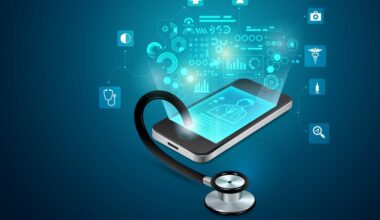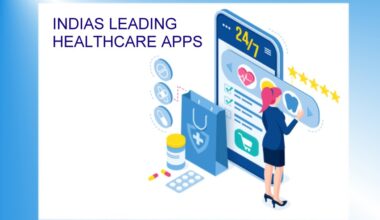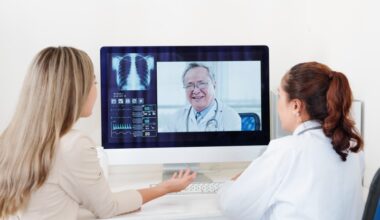Digital technology is the backbone of any industry and healthcare is no exception. Especially post COVID, there’s been a significant spurt in the digital healthcare realm where AI-ML, IoT, Robotics, and Blockchain have a major role to play.
Enhanced operational efficiency, improved patient care, and many more, technology is helping healthcare providers, as well as patients and their caregivers in massive ways.
Let’s explore and see how technology is impacting the healthcare industry that is adopting massive digital tools and technologies in the ecosystem.
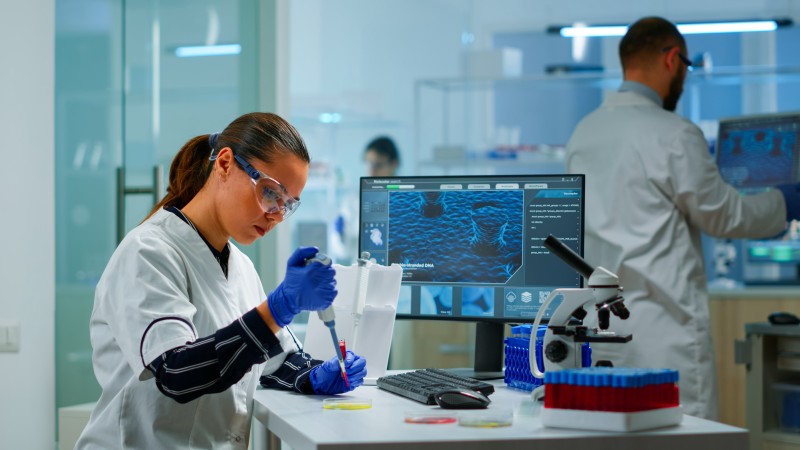
Telemedicine & Remote Healthcare
AI-ML-powered remote healthcare technologies like telemedicine are considered a boon to the healthcare industry. As per Deloitte, during the first few months of the pandemic, the online healthcare consultations on a remote basis shot up from 0.1% to the massive 43.5%.
And as Deloitte analysts say, this trend of virtual visits will continue in the coming years, too! Varied telemedicine types like online real-time, remote patient monitoring and store-and-forward telemedicine are leveraging digital technology tools and technologies to help healthcare providers and patients alike. Remote healthcare and telemedicine
Automated Administration Processes
Technology is helping in automating areas such as medical & non-medical administration processes. Numerous records, admin processes, documentation, etc. need to be duly maintained while maintaining the accuracy and efficacy of those sensitive data and records.
They should not go into the wrong hands, too! Thus, digital technology in healthcare helps to facilitate improved workflows and daily activities. Automation in form filling, documentation, client & customer support, approving/sanctioning certain appointments, so many things under the administration department are automatically handled by AI automation tools and digital chatbots, virtual assistants, and the likes.
Big Data
Big Data digital capabilities help the healthcare industry to provide easy and convenient access to huge data, structured & unstructured data, pooling the right information at the right time to the right (authorized) person.
Big Data technology helps to store and process data enhancing sharing ability, enabling access to patient’s information, and medical history /records while ensuring 100% privacy and security, the safety of these sensitive data & information.
The very technology facilities analytical ability while allowing researchers, and providers to draw comprehensive data analysis, and analytical reports from more diverse population groups and communities. A deeper meta-analysis is possible now with the help of metadata.
Integration of Medical Records (EMR)
EMR means Electronic Medical records and is proving a big boon to the healthcare industry. In the legacy healthcare model, medical records/information of patients were maintained in respective locations, such as, if patients visited physicians, records like prescriptions had to be maintained manually or on a local computer/hard disk.
Then, the same patients who saw a dentist or gynecologist in their medical journey had to secure all medical reports, and prescriptions and store them somewhere safe for future reference. In case they got misplaced, it would prove a challenging time for patients and related consulting doctors, too.
But, EMR technology in healthcare is addressing this challenge perfectly well by securing all medical history, records, and healthcare reports online and centrally stored.
XR/AR/VR/MR for Treatment Process & Clinical Training
XR(Extended Reality) refers to VR(Virtual Reality), AR(Augmented Reality), and MR (Mixed Reality), and are technology wonders for the healthcare sector. These digital technologies create a virtual environment, such as overlaying virtual elements on respective real-time images and contribute to the clinical/treatment processes. They have immense use-cases in the healthcare sector.
VR headsets, for instance, are used for training surgeons, doctors, healthcare specialists, and in varied treatment processes. XR can be used for therapies, treatment of patients suffering from autism, schizophrenia, and so on.
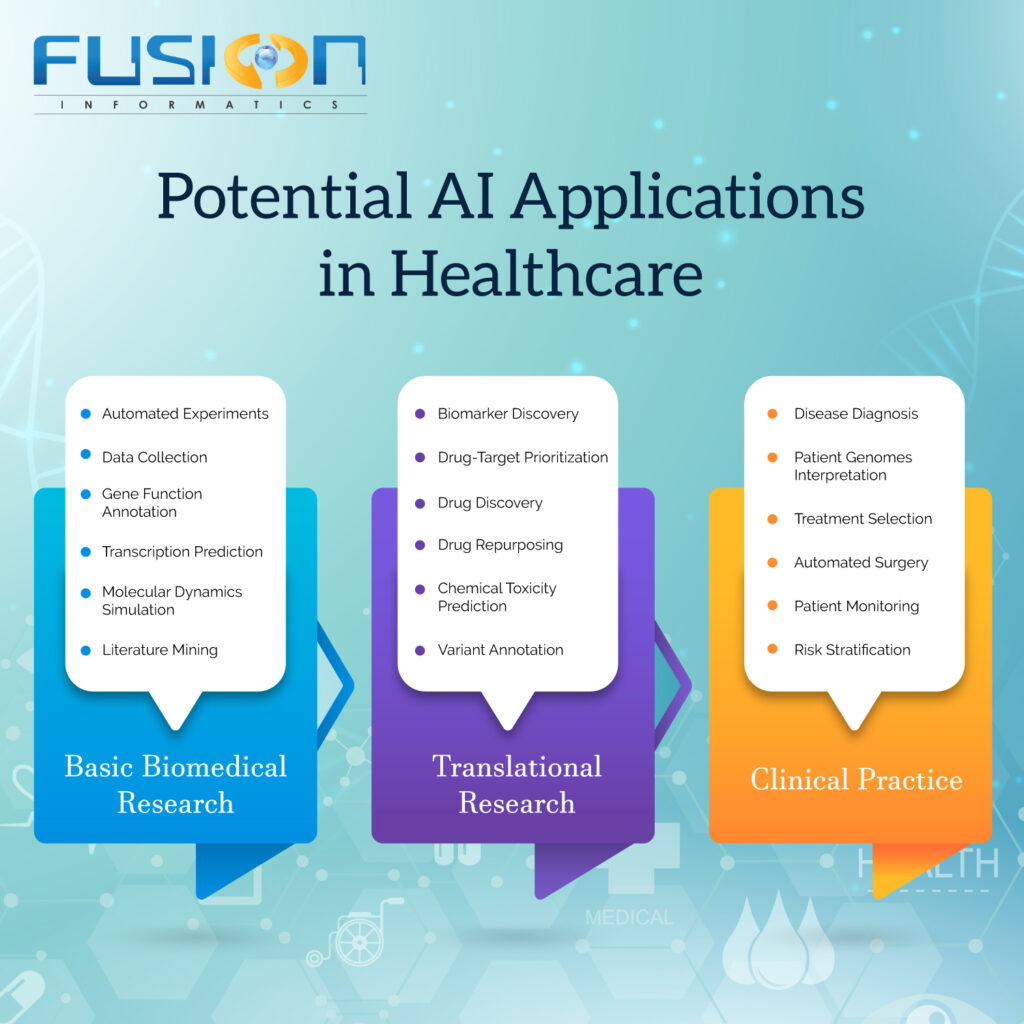
Digital is the Core
Digital technology is the base of any transformation happening in the healthcare industry. AI/ML, NLP-powered digital chatbots, IoT, Robotics, AR/VR, and RPA are a mere few names that the industry is leveraging to their full potential.
Remote patient care and monitoring, telehealth/telemedicine, and varied other technologies are impacting the healthcare industry incessantly at a global level.
Are you a healthcare provider, hospital, or clinic and want to know how technology can help boost the ROI of your healthcare business? Connect with our experts today, and get started!
